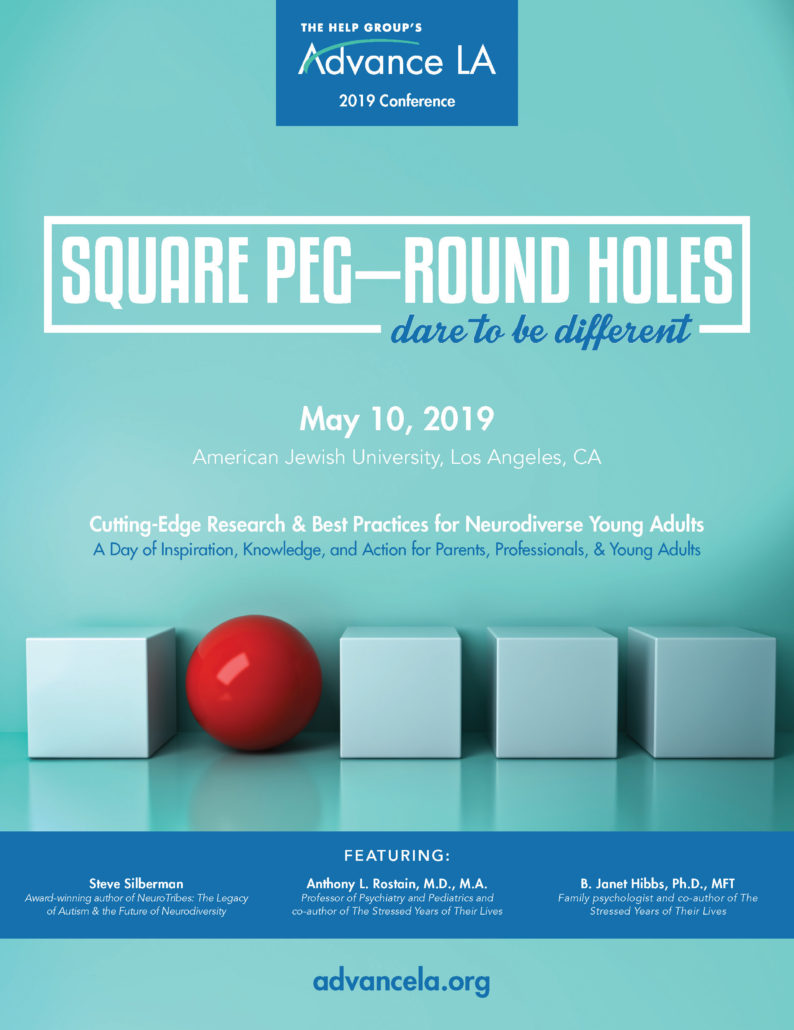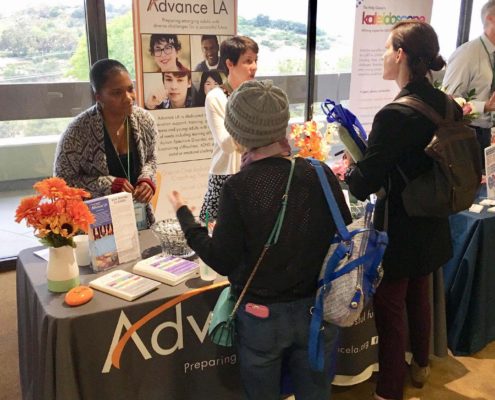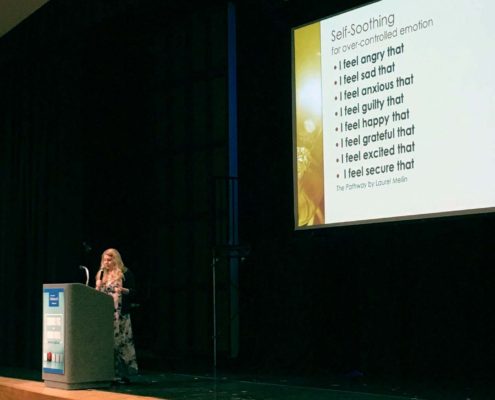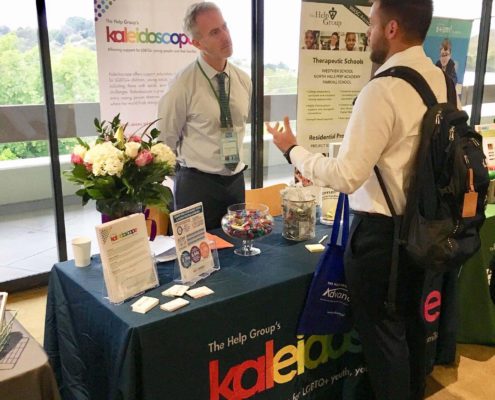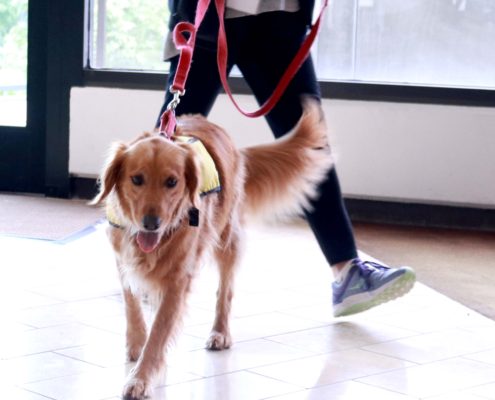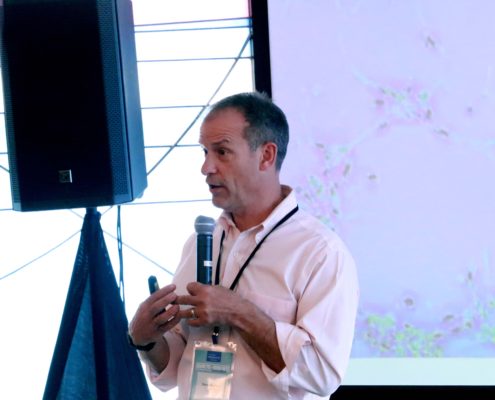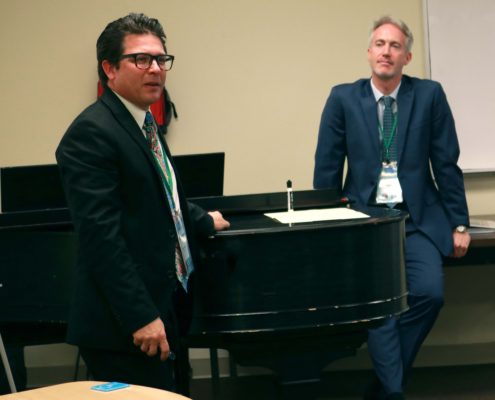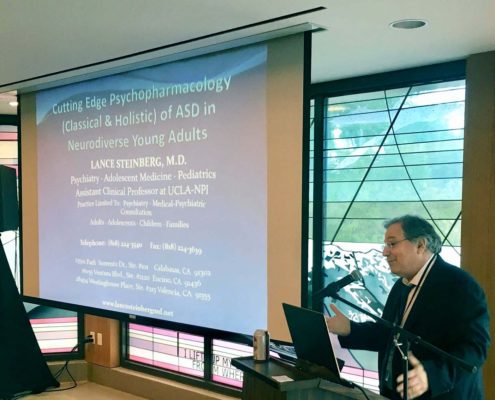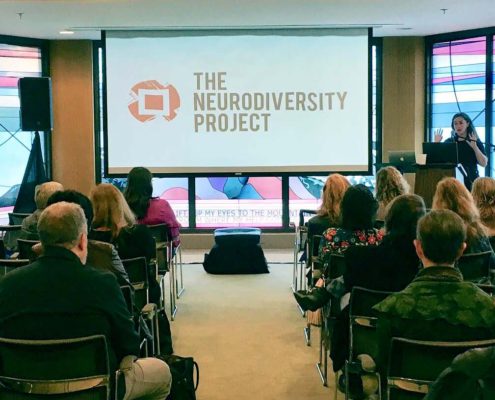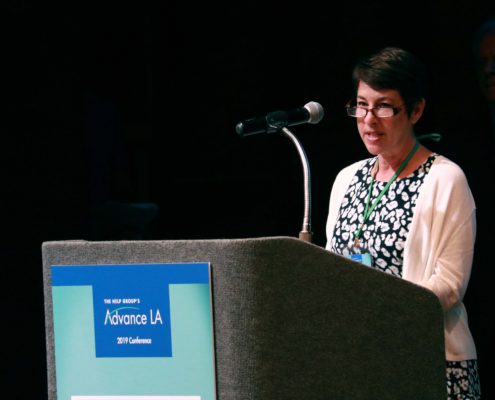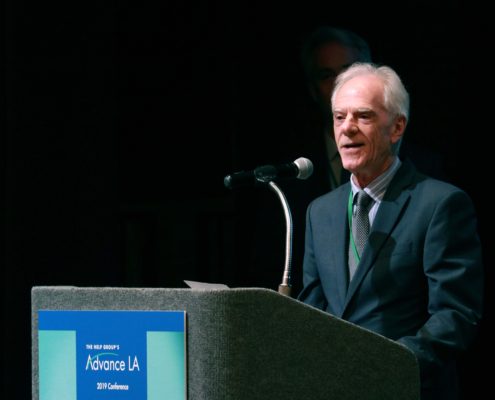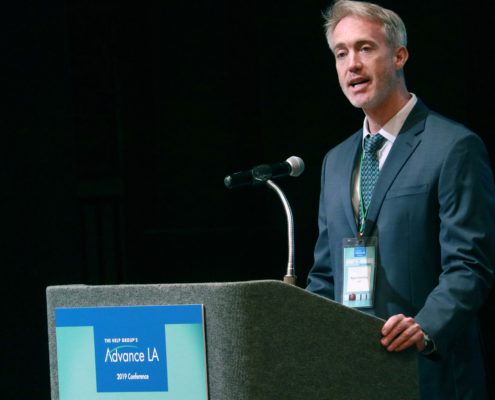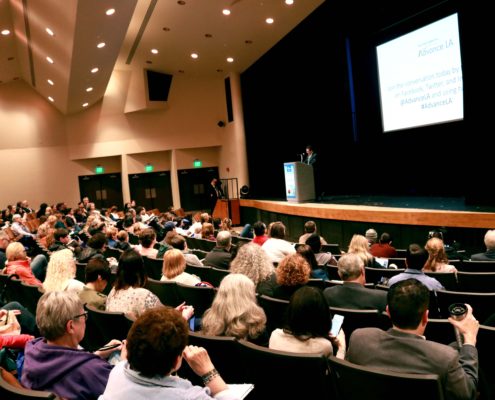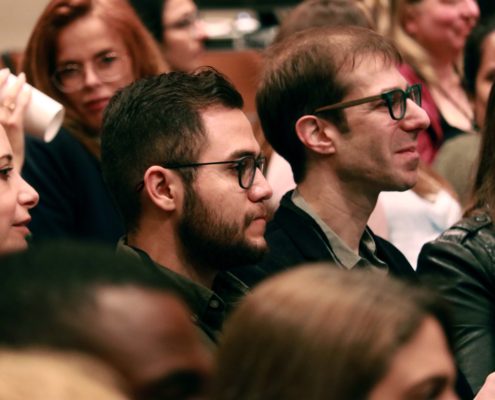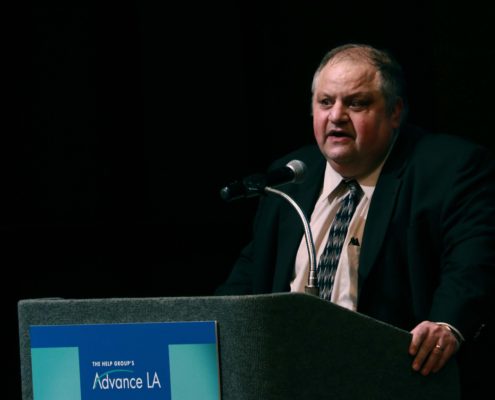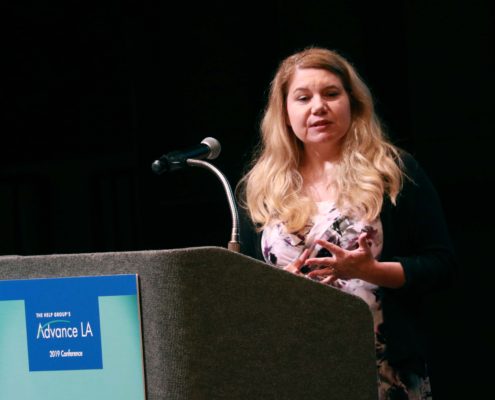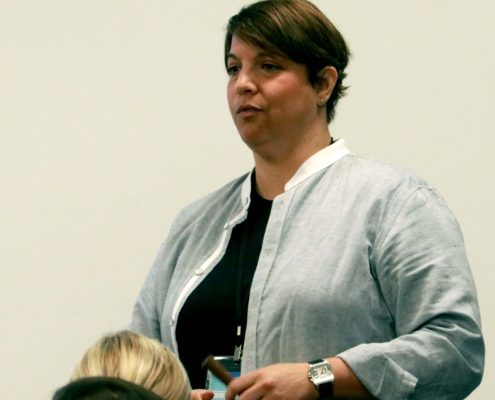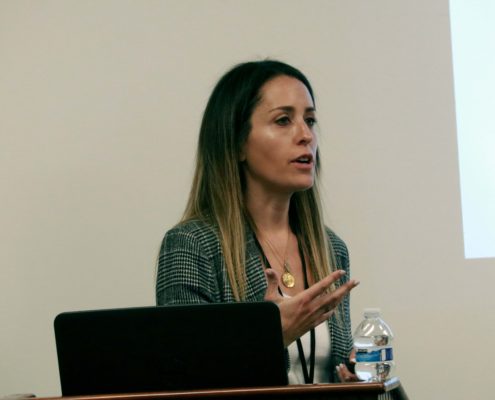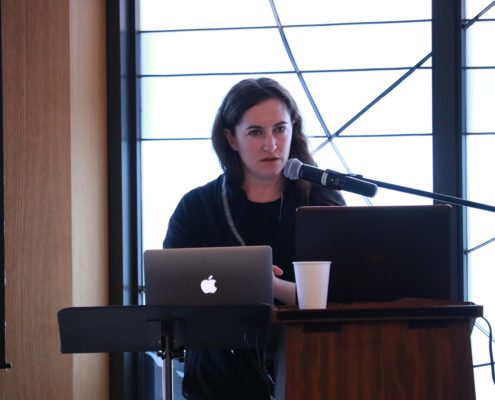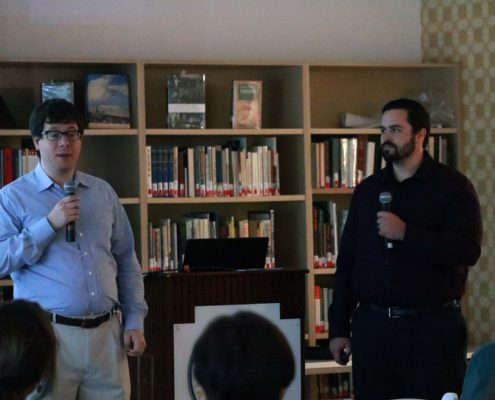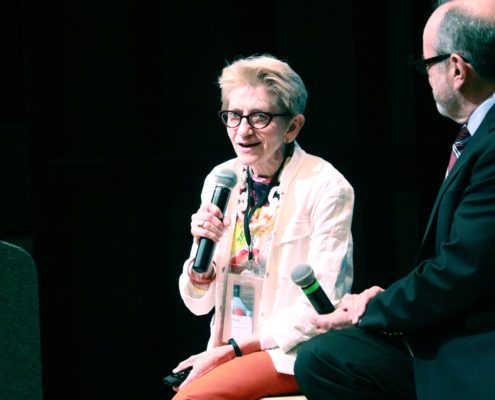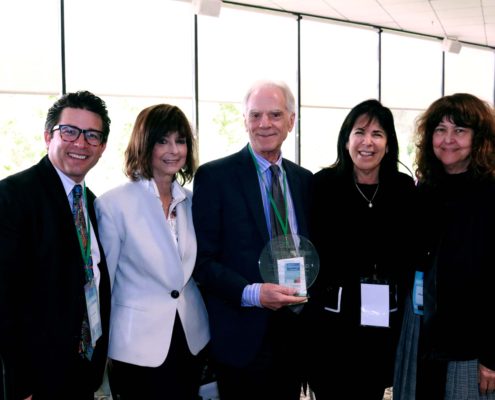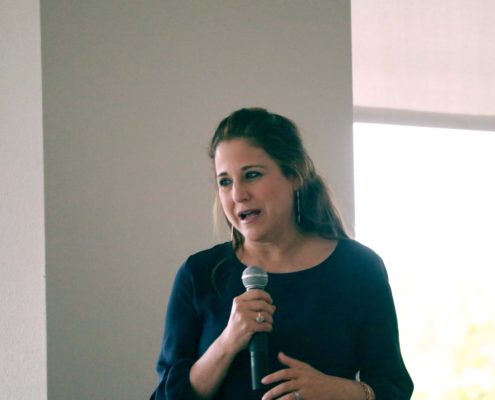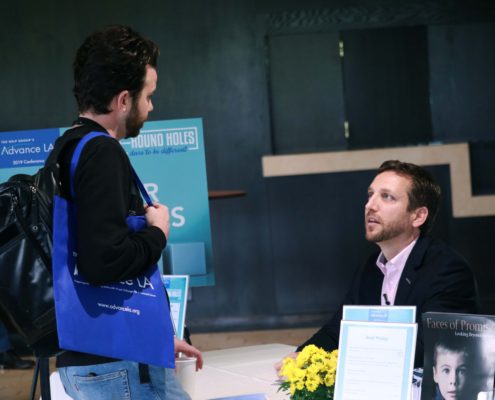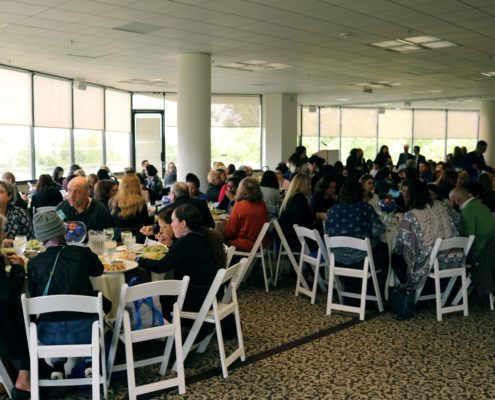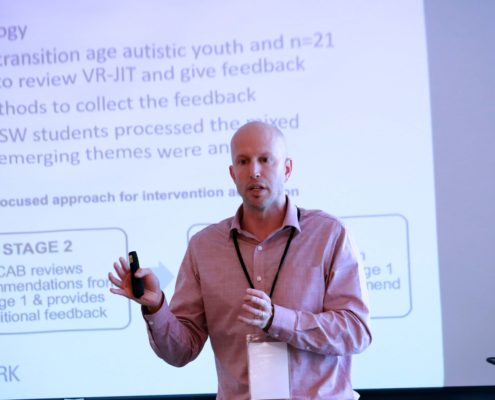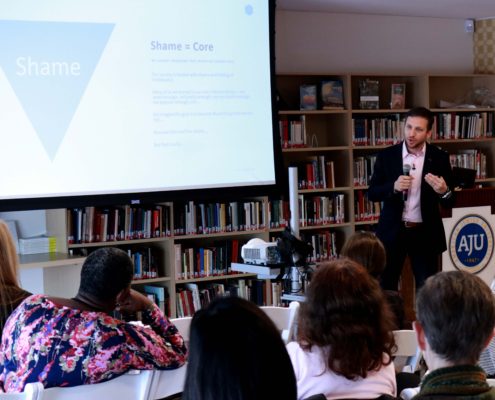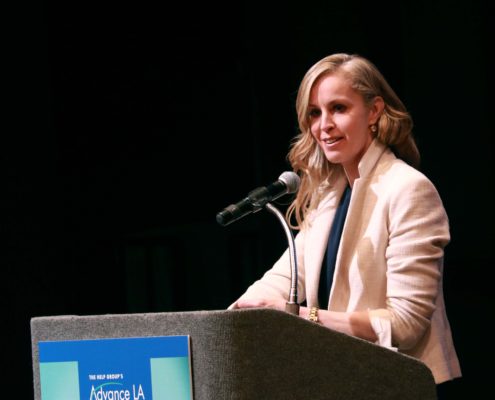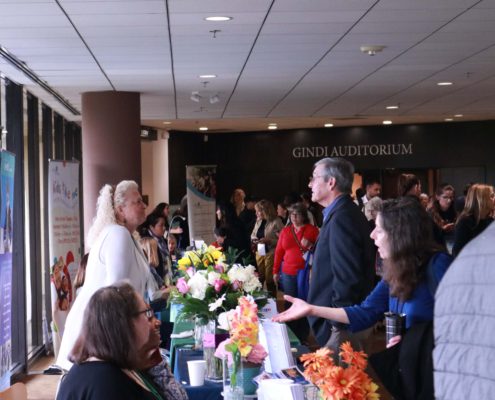Square Peg - Round Holes: Dare to be Different
The Help Group’s 2019 Advance LA Conference, Square Peg – Round Holes: Dare to be Different featured internationally prominent experts whose research and practice support young adults with autism, learning differences, and ADHD. 2019’s conference focused on neurodiversity, Dialectical Behavior Therapy (DBT), LGBTQ+ research and support, social skills, career paths, executive functioning, and more.
Friday, May 10, 2019
Our Keynote Speaker, Steve Silberman discussed the growing movement to frame autism and other conditions, such as dyslexia and ADHD, as natural human variations that deserve support and accommodations, rather than disorders that need to be eradicated from the human genome. Silberman advocates that neurological differences are authentic forms of human diversity, that all human lives have value, and that atypical forms of brain wiring can also convey unusual skills and aptitudes. He argues that society should help individuals make the most of their native strengths and special interests, rather than focusing on trying to correct their deficits or normalize their behavior.
In addition to Steve Silberman, other featured sessions and speakers included a popular DBT track by Sasha Ginsburg-Gutstein, LCSW and Erin Lotz, LCSW, Luncheon Speaker Rabbi Sherre Hirsch, and our afternoon keynotes Dr. Anthony Rostain and Dr. B. Janet Hibbs who showed fascinating video footage from a young adult’s perspective on transitioning into college and adulthood. There was also a highly attended session by two young adults discussing their unique friendship and advice on how to form lasting connections.
Session Descriptions
MORNING KEYNOTE SPEAKER
Neurodiversity: Great Minds Don’t Always Think Alike
Steve Silberman
Level: Intermediate; Audience: General
In this lecture, Steve Silberman discusses neurodiversity — the growing movement to frame autism and other conditions, such as dyslexia and ADHD, as natural human variations that deserve support and accommodations, rather than disorders that need to be eradicated from the human genome. Silberman advocates that neurological differences are authentic forms of human diversity, that all human lives have value, and that atypical forms of brain wiring can also convey unusual skills and aptitudes.
He argues that society should help individuals make the most of their native strengths and special interests, rather than focusing on trying to correct their deficits or normalize their behavior. Silberman will explain how the concept of neurodiversity emerged from the disability-rights movement after decades of misconceptions that caused great harm to autistic people and their families.
Learning Objectives – At the end of this session, participants will be able to:
- Recognize and critique assumptions based on these misconceptions
- Design programs and presentations based on an accurate view of how the concept of neurodiversity emerged from the specific timeline of autism’s discovery and the broader history of advocacy for inclusion in education and employment
SESSION 1
A.
Six Super Skills: Building Executive Functioning to Dream It and Do It
Lara Honos-Webb, Ph.D.
Level: Intermediate; Audience: General
This workshop will help attendees learn the six super skills to build executive functioning: Find Gifts, Goal Setting, Chunking, Boost Motivation, Emotional Regulation, and Attention Management. Participants will learn how to increase focus and persistence, and decrease impulsivity. Dr. Honos-Webb will offer recommendations on how to shift from patching up weaknesses to building on strengths in order to increase motivation and confidence to solve real-world problems.
Four strategies for success in the workplace will also be reviewed, including: Finding Gifts, Finding Support Outside the Work Environment, Meeting Needs in the Work Setting, and Finding the Right Match. The emerging science of attention management will also be discussed.
Learning Objectives – At the end of this session, participants will be able to:
- Identify the six super skills to build executive functioning
- Explain the benefits of finding strengths and interests for increasing attention and emotional regulation
- Use specific self-talk solutions for young adults
- Identify four strategies for success in the workplace
- Summarize the science of attention management
B.
Gender Dysphoria: A Deeper Dive Beyond the Diagnosis
Johanna Olson-Kennedy, M.D. and Aydin Olson-Kennedy, LCSW
Level: Intermediate; Audience: General
Gender dysphoria (GD) is broadly described as the persistent emotional, physical or mental distress caused by the discordance between one’s gender identity and assigned sex at birth. This workshop will explore dimensions of gender dysphoria that are rarely discussed in academic settings, reviewing how GD might present across different developmental stages, and how it may impact the developmental trajectories of transgender youth and young adults. The presenters will demonstrate how limited the existing diagnostic criteria currently are in describing this nuanced experience, and how providers can assist youth in identifying and better mitigating gender dysphoria.
Learning Objectives – At the end of this session, participants will be able to:
- Identify additional presentations of gender dysphoria
- Identify the unique challenges transgender individuals face because of gender dysphoria
- Explain the impact of gender dysphoria on the developmental trajectories of transgender youth
C.
Empathy and Neurodiversity
Jenara Nerenberg, M.S.
Level: Intermediate; Audience: General
The history of psychological research has pathologized sensitivity and sensitivity is a trait that shows up across neurodivergences such as autism, synesthesia, and the highly sensitive person (HSP). Among girls and women, however, the societal pressure to mask and camouflage has made it difficult to be open and candid about deep sensitivity — and depression and anxiety often result instead.
In this workshop, participants will learn about the overlap of five traits that often go unrecognized in girls and women: autism, ADHD, SPD, HSP, and synesthesia. Attendees will hear examples from interviews with women who are writers, designers, entrepreneurs, tech leaders, teachers, and more. Why is it important to pay attention to sensitivity and heightened empathy amongst young women? Because if we don’t model how to honor it for them now, they will pick up societal messages to cover it up and then land in the psychiatrist’s office instead asking for help with anxiety and depression — when the root sensory trait is not being properly recognized.
Participants will learn about new research and vocabulary to introduce instead that generates a narrative shift within families, schools, therapeutic settings, and within the person herself.
Learning Objectives – At the end of this session, participants will be able to:
- Identify empathy as a core component in individuals on the spectrum, especially in girls and women who “mask”
- Identify co-existing traits of high sensitivity and empathy with autism, including synesthesia, HSP, and SPD
- Describe case examples from women leaders on the spectrum in diverse industries
- Identify the terminology of the neurodiversity framework and its impact on media, narratives, and broader conversations
D.
Mindful Parenting (Dialectical Behavior Therapy Track)
Sasha Ginsburg-Gutstein, LCSW and Erin Lotz, LCSW
Level: Intermediate; Audience: General
Attendees of this session will learn about mindfulness and how to incorporate it into parenting. The speakers will discuss different communication strategies as well as the obstacles that get in the way of effective communication between parents and teens. Mindful parenting will teach individuals how to slow down, pause, and parent according to one’s values. Attendees will also learn how to use Dialectical Behavioral Therapy (DBT) strategies to de-escalate emotional arousal as it pertains to parent/child communication issues that can arise due to emotional vulnerability.
Learning Objectives – At the end of this session, participants will be able to:
- Discuss how to incorporate mindfulness into parenting
- Describe effective strategies of communication between parents and teens
- Use Dialectical Behavior Strategies to de-escalate emotional arousal
SESSION 2
A.
Managing Peer Conflict and Rejection for Young Adults with ASD: The UCLA PEERS Program
Elizabeth Laugeson, Psy.D.
Level: Intermediate; Audience: General
This session will focus on evidence-based strategies for handling peer conflict and rejection for adults with autism spectrum disorder and other social challenges. Concrete rules and steps of social etiquette, which have been validated through research trials, will be highlighted. Evidence-based methods of social skills instruction utilized in the PEERS social skills intervention will be summarized.
Learning Objectives – At the end of this session, participants will be able to:
-
Describe the unique social challenges of adults on the autism spectrum
-
List evidence-based methods for teaching social skills to adults with autism spectrum disorder
-
Discuss ecologically valid strategies for handling peer conflict and rejection
B.
Virtual Interview Training for Transition-Age Youth with Autism Spectrum Disorders
Matthew Smith, Ph.D., MSW, MPE, LCSW
Level: Intermediate; Audience: General
This session will present the brief history of the development and evaluation of Virtual Reality Job Interview Training, a tool that helps adults with disabilities find employment. In addition, this session will focus more intensely on the process to adapt this tool to meet the needs of transition age youth with autism spectrum disorders and report on our initial findings when evaluating the adapted tool in high school students.
Learning Objectives – At the end of this session, participants will be able to:
- Discuss the evidence supporting the delivery of virtual interview training in their service agency or school
- Identify the practical applications of virtual interview training in their service agency and school
- Develop an initial strategy to deliver virtual interview training at their service agency or school
C.
Rethinking the Role of Shame in Addiction
Adi Jaffe, Ph.D.
Level: Intermediate; Audience: General
Addiction is one of the most prevalent and destructive mental health issues the United States has ever faced, with overdose deaths alone overtaking all other forms of accidental deaths in the nation. Still, treatment engagement is extremely poor and outcomes are disappointingly lacking, leaving many hopeless in the face of disaster. This workshop will reconsider our current approaches to treating addiction and offer a completely new take on the problem, rethinking our current understanding to the treatment problem.
Every clinician comes across clients whose drinking, drug-use or compulsive behaviors interferes with their therapeutic process. Nevertheless, most clients report not wanting to completely quit drinking and begin to withdraw when presented with traditional treatment options. This workshop will allow participants to overcome barriers to engagement while providing a toolkit to help clients improve even if they are resistant to traditional approaches, are not interested in complete abstinence, or do not identify as “addicts.”
We will discuss and elucidate research regarding the role of labels in shame and stigma and treatment resistance. Additional barriers to treatment engagement will be discussed along with other factors important in developing resistance to treatment. Finally, we will discuss tools and techniques, along with a different set of language and belief-based approaches to improving engagement and retention, which have been shown to lead to improved treatment outcomes.
Learning Objectives – At the end of this session, participants will be able to:
- Identify key barriers to treatment engagement and identify the role of shame and stigma in poor outcomes
- Learn new approaches to engage clients/loved ones in treatment
- Help educate and guide clients/loved ones towards improvement in a non-shaming way
D.
Who’s In Charge? Me or My Emotions? (Dialectical Behavior Therapy Track)
Sasha Ginsburg-Gutstein, LCSW and Erin Lotz, LCSW
Level: Intermediate; Audience: General
Attendees of this session will learn about emotions, what they do, and why it is important to understand emotions in order to manage them. Attendees will also learn how Dialectical Behavioral Therapy (DBT) uses the principals of emotion regulation to assist teens as well as family members communicate more effectively and decrease emotional vulnerabilities.
Learning Objectives – At the end of this session, participants will be able to:
- Analyze emotions and why it is important to understand emotions in order to manage them
- Describe how Dialectical Behavior Therapy uses emotion regulation to increase effective communication and decrease emotional vulnerabilities among teens and their families
LUNCH
Living Well in the Face of Life’s Most Challenging Moments
Rabbi Sherre Hirsch
AFTERNOON KEYNOTE
The Stressed Years of Their Lives: College and the Launch to Adulthood for Neurodiverse Youth
Anthony Rostain, M.D., M.A. and B. Janet Hibbs, Ph.D., MFT
Level: Intermediate; Audience: General
When Dr. Hibbs’ son Jensen left for college, his parents had every reason to believe he was prepared. Unfortunately, things didn’t turn out exactly as planned. Jensen became severely depressed and withdrew from school on medical leave. His journey from crisis to recovery led Dr. B. Hibbs to co-author a book with Jensen’s psychiatrist, Dr. Rostain, an expert in college student mental health. It is a parents’ guide for preparing kids for college and beyond. This session will focus on the specific challenges faced by young people on the spectrum (and their families) as they move into the world of higher education. It will cover key topics such as social-emotional preparation, promoting executive functioning, choosing the right school, managing negative mindsets, finding safety nets to support students with special needs, identifying holes in the school’s support system, and managing crises if they arise.
Learning Objectives – At the end of this session, participants will be able to:
- Cite the key indicators of social-emotional readiness for college
- Outline a plan for selecting the right college or post-secondary program
- List the three main negative mindsets that interfere with successful transition to college
- Describe how executive functioning can be fostered prior to the end of high school
- Identify obstacles to and strategies for helping students in crisis
SESSION 3
A.
Treating Anxiety in Young Adults Using Cognitive-Behavioral Therapy
Margaret Distler, M.D., Ph.D.
Level: Intermediate; Audience: General
Cognitive behavioral therapy (CBT) is a well-established, evidence-based psychotherapy for treating anxiety disorders across all ages. Anxiety disorders in young adults have unique presentations due to the demand of early adulthood, such as new developmental tasks, educational rigors, and social environments. This presentation will review the application of CBT in young adults with anxiety disorders. Topics will include: 1) principles of CBT; 2) unique presentation of anxiety disorders in young adults; 3) conceptualization of young adults with anxiety disorders from a cognitive-behavioral perspective, and 4) special techniques using CBT to treat young adults with anxiety disorders.
Learning Objectives – At the end of this session, participants will be able to:
- Identify unique stressors in young adulthood that contribute to anxiety symptoms
- Apply specific CBT techniques to treat young adults with anxiety disorders
B.
Our Neurodiverse Friendship: How Two Unlikely Friends Learned to Beat Loneliness, Form Lasting Connections, and Create a Place Where Everyone Could Belong
Daniel Wendler, M.A. and Kyler Shumway, M.A.
Level: Intermediate; Audience: General
Best friends, authors, and soon-to-be-clinical psychologists Dan Wendler and Kyler Shumway take the stage to share insights gained from their neurodiverse friendship. You’ll learn how Dan’s Asperger’s diagnosis and Kyler’s struggles with social anxiety and bullying paved the way for their unique connection. You’ll also discover the practical strategies they used to overcome loneliness and create a life of friendship, and learn how to apply those some strategies in your own life or the lives of others. Laugh along with Kyler and Dan’s inside jokes, be inspired by Kyler and Dan’s stories, and discover a renewed hope that everybody – no matter their differences – can find a place to belong.
Learning Objectives – At the end of this session, participants will be able to:
- Use practical strategies to help themselves or others form new friendships or deepen existing ones
- Identify and correct patterns that prevent themselves or others from forming satisfying friendships
- Apply personal values to motivate change in themselves or others
C.
Gender Non-Conforming Youth and Autism Spectrum Disorders
Jason Bolton, Psy.D. and Bryan Scheihing, LMFT
Level: Intermediate; Audience: General
Although exact prevalence in youth is not established, it is clear that an increasing number of children, youth, and young adults are presenting to clinics for services related to their gender identity. The prevalence of individuals of all ages identifying as transgender and/or experiencing gender dysphoria seems to be about 0.2% – 0.3% of the population. While gender variation is not a disorder, these youth are known to be an underserved population with specific medical and mental health needs. They are at risk for being victims of abuse and rejection by family, friends, and peers; and developing mental health issues, including mood disorders, suicidal thinking, self-harm behaviors, and anxiety.
Tantamount to this talk, co-occurring autism spectrum disorders are increasingly being recognized in gender nonconforming youth. Studies have shown that those with ASD are 4 to 8 times more likely to identify as transgender or experience gender dysphoria than the general population. There is currently no well-researched understanding of this relationship though neuro-biological theories and theories based upon common characteristics of those with ASD have been described. In accordance with these emerging data, The Help Group, especially within its Non-public schools geared towards students with ASD, has experienced an increase in the number of students referred with ASD who are gender non-conforming. Responding to community need, The Help Group has created Kaleidoscope, a specialized program designed to provide gender-affirming services to LGBTQ+ youth and young adults with social/learning differences.
Learning Objectives – At the end of this session, participants will be able to:
- Describe the terms and concepts associated with gender variation
- Discuss the risks and specific mental health and health needs of gender non-conforming youth and young adults
- Assess the emerging data regarding possible correlations between gender nonconformity and ASD
- Describe the concept of Gender Affirming Support and Care
D.
Treating Family Systems Using DBT (Dialectical Behavior Therapy Track)
Sasha Ginsburg-Gutstein, LCSW and Erin Lotz, LCSW
Level: Intermediate; Audience: General
This session will cover the importance of treating the family system when working with teens and children in Dialectical Behavioral Therapy (DBT). This presentation introduces and describes short-term family interventions to improve family relationships and satisfaction, which is referenced as DBT-Family Skills Training (DBT-FST). Attendees will learn how to structure the family environment to help families maintain homeostasis and consistency in the home. Validation techniques, as well as behavioral principles of change, will also be discussed.
Learning Objectives – At the end of this session, participants will be able to:
- Describe the importance of treating the family system when working with teens and children in Dialectical Behavior Therapy
- Discuss short-term family interventions to improve family relationships and satisfaction
- List validation techniques and behavioral principles of change
E.
The Opposite of Anxiety: Facilitating The Skills of Unconditional Confidence
Dave Mochel, M.A.
Level: Intermediate; Audience: General
Anxiety and stress are on the rise among both adolescents and adults. The effects of this are showing up particularly in special needs populations. We can help our students/children/clients develop beliefs and daily practices that cultivate their inherent ability to meet challenge, discomfort, and setback with confidence, compassion, and courage. We will look at the effect of how we use attention, language, and physiology to work skillfully with life’s inevitable ups and downs.
Learning Objectives – At the end of this session, participants will be able to:
- Distinguish between a conditional and unconditional approach to well-being
- Apply three simple practices for building unconditional confidence
- Apply three simple interventions for focusing attention on capability rather than discomfort
SESSION 4
A.
Cutting Edge Psychopharmacology (Classical & Holistic) of ASD in Neurodiverse Young Adults
Lance Steinberg, M.D.
Level: Intermediate; Audience: General
This presentation will explain psychopharmacology used across the world in treating young adults with Autism Spectrum Disorder. The emphasis will be on evidence-based data, much of the information overlapping pediatric and adolescent treatments, used in Europe and the United States.
Learning Objectives – At the end of this session, participants will be able to:
-
Identify evidence-based medication for ASD and comorbidities in neurodiverse young adults
-
Delineate some of the major side effects of psychopharmacologic medicines
-
Recall that some ethnic groups may metabolize differently than others
-
Discuss how sex hormones and gender affect medication choice
B.
Autism in the Workplace—Strategies for Success in Tech Fields
Ellis Crasnow, Ph.D. (Moderator), Rebecca Beam, Angel Miles Nash, Ph.D. and Mellissa Toler, M.S.
Level: Intermediate; Audience: General
Individuals on the autism spectrum often have significant natural skills and abilities that lend themselves extremely well to STEM pursuits. Given the large number of job openings in technology fields, it seems appropriate to match the high number of individuals on the spectrum who are skilled in those areas and seeking employment with the demand for those with these special skills. In this panel presentation, we will address these as well as other issues to pinpoint the training, education, and skill set necessary for young adults on the autism spectrum to thrive in technology fields.
Learning Objectives – At the end of this session, participants will be able to:
- Discuss the ways in which the present educational model limits success for young adults on the autism spectrum
- Identify strategies for improving the participation of those on the autism spectrum in the workforce
- Highlight areas of workplace demand due to rapid growth which might be well suited to young adults on the autism spectrum with the relevant technical skills
C.
Community Resources: Supporting Greater Independence for Young Adults
Heather Humphrey, M.A., LMFT (Moderator), Loreena Garcia, MPA, Malahat Mansouri and Nazanin Nejad
Level: Intermediate; Audience: General
Navigating the world of adulthood is sometimes overwhelming. There are so many options and it is often difficult to find the right fit for each young adult. This panel will address some of the resources available to assist young adults with disabilities with the transition to adulthood and will explore the options available to young adults who are interested in employment, post-secondary education/vocational training, individualized and group community-based services, and benefits planning. Panelists will include representatives from the Department of Rehabilitation, the Regional Center, Work Incentives planning/SSI navigation, and community-based service providers.
Learning Objectives – At the end of this session, participants will be able to:
- Describe current supports that are available to assist young adults with disabilities in obtaining employment, accessing post-secondary education, and/or vocational training
- Identify community-based options for young adults with disabilities who may need additional support to reach their goals
- Identify resources and tools to assist young adults with benefits planning as it relates to SSI
- Apply strategies to improve outcomes for youth with ASD and related disabilities in transitioning to adulthood as it relates to employment, independence, and self-sufficiency
D.
You Mean You Can’t Read My Mind? Getting Your Needs Met and Factors That Get In The Way (Dialectical Behavior Therapy Track)
Sasha Ginsburg-Gutstein, LCSW and Erin Lotz, LCSW
Level: Intermediate; Audience: General
Attendees will learn the importance of being effective in interpersonal relationships and factors that get in the way. Attendees will also learn that communicating thoughtfully instead of letting your emotions impulsively guide your interactions builds stronger, healthier relationships. Interpersonal effectiveness includes training and practice in listening, communicating, and relating to other people.
Learning Objectives – At the end of this session, participants will be able to:
- Describe factors that can inhibit having effective interpersonal relationships
- Analyze the benefits of communicating thoughtfully as opposed to letting emotions guide interactions
Presenters
KEYNOTE SPEAKERS
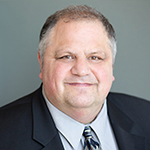
Steve Silberman
Steve Silberman is an award-winning science writer whose articles have appeared in Wired, the New Yorker, the MIT Technology Review, Nature, Salon, Shambhala Sun, and many other publications. He is also the author of the New York Times best-selling NeuroTribes: The Legacy of Autism and the Future of Neurodiversity, which unearths the secret history of autism, long suppressed by the same clinicians who first became famous for discovering it, while also discovering surprising answers to the crucial question of why the number of diagnoses has soared in recent years. The book received a California Book Award as well as the Samuel Johnson Prize for Non-Fiction — the first popular science book to win the prize in its 17-year history. NeuroTribes is currently being adapted as a film by Paramount Pictures with Lorne Michaels producing.
Silberman speaks regularly at schools and universities, advocacy groups and organizations, and corporations including Microsoft, Google, and Apple.
In his book and his keynote presentations, Silberman shares little-known stories of the researchers and psychiatrists who pioneered the first autism diagnoses while also providing long-sought solutions to the autism puzzle. In an effort to shed light on the growing movement of “neurodiversity,” Silberman discusses the evolution of autism and explores the need for a more humane world in which people with learning differences and those who love them have access to the resources they need to live happier, healthier, more secure, and more meaningful lives.
Silberman’s writing has earned him numerous accolades and awards, including a 2010 Science Journalism Award for Magazine Writing from the American Association for the Advancement of Science and the Kavli Foundation for his article titled “The Placebo Problem.” His writing on science, culture, and literature has been featured in a number of anthologies, including The Best American Science Writing of the Year and The Best Business Stories of the Year. His TED talk, “The Forgotten History of Autism” has been viewed more than 800,000 times and translated into 29 languages while his Twitter account, @stevesilberman, made Time magazine’s list of the best Twitter feeds for the year 2011. Silberman lives with his husband, Keith, in San Francisco.
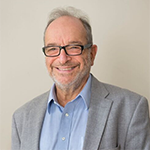
Anthony L. Rostain, M.D., MA
Anthony L. Rostain is Professor of Psychiatry and Pediatrics at the University of Pennsylvania’s Perelman School of Medicine. His clinical focus is “lifespan neurodevelopmental psychiatry,” which includes patients of all ages with Attention Deficit Hyperactivity Disorder, Autism Spectrum Disorders, Tourette Syndrome, Learning Disabilities (verbal and nonverbal), and related social learning disorders. He treats patients at The Children’s Hospital of Philadelphia where he is Co-Director of the Pediatric Neurodevelopmental Psychiatry Service, and at Penn Medicine / Behavioral Health where he is Medical Director of the Adult Development Disorders Unit which includes the Adult ADHD Treatment and Research Program and the Adult Social Learning Disorders Program.
Dr. Rostain’s research interests focus on improving clinical outcomes for patients across the lifespan with neurodevelopmental disorders, and on creating effective service systems for these patients and their families. He served as Vice Chair of Education for the Department of Psychiatry from 1998-2017 and as Co-Chair of the University of Pennsylvania’s Task Force on Student Psychological Health and Welfare from 2014-16. He has co-authored two books on adult ADHD, entitled The Adult ADHD Tool Kit: Using CBT to Facilitate Coping Inside and Out, and Cognitive-Behavioral Therapy for Adult ADHD: An Integrative Psychosocial and Medical Approach (Routledge, 2015). He is also co-author of an upcoming book on college mental health entitled The Stressed Years of Their Lives: Helping Your Kid Survive and Thrive During Their College Years (St. Martin’s Press, 2019).
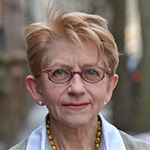
B. Janet Hibbs, MFT, Ph.D.
B. Janet Hibbs. M.F.T., Ph.D., Contextual Therapy Associates, is a recognized authority on parent-child and family relationships and has held faculty positions for more than 15 years in graduate programs for psychologists and marital and family therapists. She is an Approved Supervisor for the American Association of Marriage and Family Therapists.
LUNCH GUEST SPEAKER

Rabbi Sherre Hirsch
Sherre Hirsch is a rabbi, author and spirituality expert dedicated to empowering individuals to be their own most trusted spiritual guides. She currently serves as Hillel International’s Senior Rabbinic Scholar, focused on developing a culture of wellness and spirituality on 550 campuses worldwide. She is also the Spirituality Consultant for Miraval Properties, where she organizes retreats and leads workshops focused on grief, healing, and spirituality.
Hirsch launched her rabbinic career as the first woman rabbi at Sinai Temple, Los Angeles’s largest and oldest conservative synagogue. During her eight-year tenure on the pulpit, she was instrumental in the founding of Friday Night Live and other nationally-recognized innovative programming.
Since then, she has published two books with Random House – We Plan, God Laughs: What to Do When Life Hits You Over the Head, an Amazon top 100 in all books, and Thresholds: How to Thrive Through Life’s Transitions to Live Fearlessly and Regret-Free – a Vanity Fair “Best Type.” She is the co-founder of NotAlone, a mobile app empowering 18-24 year-olds to connect consciously and enhance their social, emotional well-beings. Hirsch also served as the Spirituality Consultant for Canyon Ranch Properties for 15 years and was honored as Jewish Women International Women to Watch.
Hirsch’s modern approach to ancient Jewish wisdom and relatable framework for spirituality has made her a sought after speaker, teacher, consultant, counselor, and national media contributor. She is married to Dr. Jeffrey Hirsch and resides in Los Angeles with her four children, foster son and rescued dog, Latke.
PRESENTERS
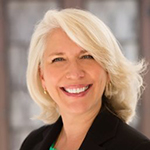
Rebecca Beam
Rebecca Beam is President of auticon U.S., driving growth and overseeing operations for the company, domestically. As a veteran of California’s burgeoning tech sector since 1998, Rebecca’s career has included senior leadership roles sourcing and developing human capital with high-demand skill sets for the area’s leading tech firms, including Fortune 500. Through her experience in the dot-com era of the early century through Silicon Valley’s tech revival, Rebecca has been crucial in helping clients navigate the fluctuating tech-talent gaps that occur when jobs outpace available resources. As one of the founding members of MindSpark Inc.’s Advisory Board in 2014, she became passionate about improving the 80% unemployment rate amongst people on the autism spectrum and the need for these talented individuals to be employed. auticon – with headquarters in Germany and international in scope – acquired MindSpark in 2018 coinciding with Rebecca’s appointment as Managing Director, now President of auticon US.
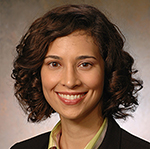
Margaret Distler, M.D., Ph.D.
Dr. Distler earned her M.D. and Ph.D. from the University of Chicago. Her Ph.D. studies focused on the genetic and molecular bases of anxiety. She completed her psychiatry residency at UCLA where she was the chief resident in the Anxiety Disorders Clinic and participated in clinical and basic research on anxiety and depression.
At present, she is a psychiatrist at UCLA and the West Los Angeles VA Medical Center. At both locations, she works in the Anxiety Disorders Clinics where she treats patients with anxiety disorders using psychopharmacology and cognitive behavioral therapy. In these clinics, she also supervises psychiatry residents. Dr. Distler has several clinical duties in addition to her work in the Anxiety Disorders Clinic. She treats UCLA students with mental illness and is the Associate Medical Director of the UCLA Aftercare program, where she treats patients with first-episode schizophrenia.

Sasha Ginsburg-Gutstein, LCSW
Sasha Ginsburg is an LCSW in the state of California and she holds a Masters Degree in Social Work from the University of Southern California. Currently, Sasha teaches at UCLA in the Department of Social Welfare, prior to which she spent four years working for the Department of Mental Health in Los Angeles County. She also worked at Cedars-Sinai Medical Center where she specialized in using Cognitive Behavioral Therapy and Dialectical Behavioral Therapy in treating clients. Sasha co-founded Westside DBT in 2010 and currently works in the West Los Angeles and Studio City offices. Sasha is intensively trained by Behavioral Tech in Dialectical Behavioral Therapy.
Through the process of dialectics and mindfulness, she works with her clients to uncover their inherent skills and improve their overall quality of life. Working collaboratively is crucial in this therapeutic process and in the discovery of short and long-term goals.
She has a specialty and extensive experience working with individuals and personality disorders, relationship issues, depression, anxiety, and substance abuse.

Lara Honos-Webb, Ph.D.
Dr. Lara Honos-Webb is a clinical psychologist and author of The Gift of ADHD, The Gift of Adult ADD, The ADHD Workbook for Teens, Brain Hacks and Listening to Depression. Learn more at addisagift.com.
Her work has been featured in Newsweek, The Wall Street Journal, Prevention Magazine, US News and World Report, The Chicago Tribune, and Publisher’s Weekly, as well as newspapers across the country and local and national radio and television.
Honos-Webb completed a two-year postdoctoral research fellowship at the University of California, San Francisco and has been an assistant professor teaching graduate students. She has published more than 25 scholarly articles.

Adi Jaffe, Ph.D.
Dr. Adi Jaffe’s work and research focus on changing the way people think about, and deal with mental health issues. He is passionate about the role of shame in destroying lives and aims to reduce the stigma of mental health. In this context, Dr. Jaffe has used his personal experience as an incredibly effective inspirational and motivational tool.
With a doctorate in psychology, he founded IGNTD, a wellness startup that offers a groundbreaking online course for addiction that is radically different than the one-size-fits-all model that fails 90% of addicts. He lectured in the Psychology department at UCLA and was the Executive Director and Co-Founder of one of the most progressive mental health treatment facilities in the country.
Dr. Jaffe attended UCLA, graduating with a B.A. in psychology. It was during his undergraduate career that Adi began struggling with drug issues himself, eventually leading to a 4 year hiatus from studies and into the Los Angeles drug-dealing world where he became quite successful. During that period of his life, Adi’s days looked more like a re-enactment of a beatnik novel or a Quentin Tarantino film than the life of an upper-middle class suburban kid. Following a SWAT team arrest in his apartment, an extended court case and a year-long jail sentence, Adi began rebuilding his life. This eventually led to his attainment of a Ph.D. from UCLA’s top-rated doctoral program in psychology where he graduated with honors. Even before he graduated, Dr. Jaffe’s name had become known through his online and academic writing.
His views on addiction and his research on the topic have been published in dozens of journals and online publications and he has appeared on numerous television shows and documentaries discussing current topics in addiction and the problem of addiction as a whole. Dr. Jaffe now writes for All About Addiction as well as Psychology Today, and several other online and print sources. His goal is to bring the latest knowledge about addiction to the people who could benefit from it most – those who are suffering because of it. His writing combines personal experience with a decade’s worth of fine-detail research regarding the mechanisms involved in the addictive process.
Dr. Adi Jaffe holds a Ph.D. in psychology from the University of California, Los Angeles (UCLA). He teaches courses at UCLA that address addiction specifically, research statistics or biological psychology and behavioral neuroscience more generally. Well-known for his online and academic writing, Dr. Jaffe’s views on addiction and his research on the topic have been published on his own AllAboutAddiction.com as well as Psychology Today and dozens of other journals and online publications. He has appeared on several television shows including Good Morning America and in documentaries discussing current topics in addiction.
In Adi’s debut book, The Abstinence Myth that launched in August 2018, he challenges the current recovery system and discusses his own non-traditional approach. His goal is to help others overcome addiction without shame, judgment or rules.
Adi currently resides in Los Angeles with his wife, Sophie, their three children and their dog. Adi and Sophie are both running individual wellness businesses from their home. Sophie owns her own superfood company called Philosophie and together they host a podcast, IGNTD, where they explore all things relationships. Together they serve as daily inspiration for millions of readers and followers.

Elizabeth Laugeson, Psy.D.
Dr. Elizabeth Laugeson is an Associate Clinical Professor in the Department of Psychiatry and Biobehavioral Sciences at the UCLA Semel Institute and is a licensed clinical psychologist. Dr. Laugeson is the Founder and Director of the UCLA PEERS Clinic, which is an outpatient hospital-based program providing parent-assisted social skills training for individuals with Autism Spectrum Disorder and other social impairments across the lifespan. She is also the Training Director for the UCLA Tarjan Center for Excellence in Developmental Disabilities (UCEDD) and Program Director for Dissemination, Outreach, and Education at the prestigious UCLA Autism Center of Excellence.
Dr. Laugeson has been a principal investigator and collaborator on a number of nationally funded studies investigating social skills training for youth with social difficulties from preschool to early adulthood and is the co-developer of an evidence-based social skills intervention known as PEERS. Since 2010, she has authored four books related to social skills training including, The Science of Making Friends: Helping Socially Challenged Teens and Young Adults, Social Skills for Teenagers with Developmental and Autism Spectrum Disorders: The PEERS® Treatment Manual, The PEERS® Curriculum for School-Based Professionals: Social Skills Training for Adolescents with Autism Spectrum Disorder, and PEERS® for Young Adults: Social Skills Training for Adults with Autism Spectrum Disorder and Other Social Challenges. She was a two-time recipient of the Ruth L. Kirschstein National Research Service Award from the National Institutes of Health in 2004 and 2006, the recipient of the Semel Scholar Award for Junior Faculty Career Development in 2008, and received the Distinguished Alumnus Award from Pepperdine University in 2010.
Having trained thousands of mental health professionals, educators, and families in the PEERS method, Dr. Laugeson is dedicated to developing and testing evidence-based treatments to improve social skills across the lifespan, and disseminating these empirically supported programs across the globe. At present, the PEERS manuals have been translated into over a dozen languages and the program is used in over 30 countries.
Dr. Laugeson has presented her ground-breaking research at international conferences throughout the world and her work has been featured on national and international media outlets such as People Magazine, USA Today, the LA Times, New York Times, Washington Post, CBS, ABC, NBC, Fox, CBC, NPR, and Channel 4 in the United Kingdom.
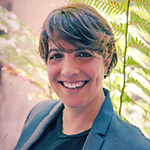
Erin Lotz, LCSW
Erin Lotz is an LCSW and holds a Masters Degree in Clinical Social Work from the University of Southern California. Erin has been part of the well-respected team of Psychotherapists and Psychiatrists at Cedars-Sinai Medical Center’s Department of Psychiatry and Behavioral Neurosciences in Los Angeles and continues to be a trusted psychotherapist and teacher. Outside of Westside DBT of which she is the Founder and Clinical Director, Erin has a private practice, www.erinlotz.com, specializing in Mindfulness Psychotherapy. Erin has extensive experience working with adolescents and adults.
Erin specializes in Dialectical Behavioral Therapy and is trained in Cognitive Behavioral Therapy working with individuals and groups. Erin provides treatment for a variety of mood, anxiety, and personality disorders, as well as difficulties with addiction, impulsive behaviors, and chronic/persistent feelings that cause great amounts of suffering. Erin believes in each individual creating a quality of life worth living.
Erin is intensively trained in Dialectical Behavioral Therapy. She was first introduced to DBT in 2000 at a Coping with Chaos training by Marsha Linehan, Ph.D., the original developer of DBT. Since then, Erin has completed DBT 2 trainings and completed the Intensive Training through Behavioral Tech.
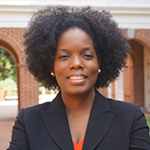
Angel Miles Nash, Ph.D.
Angel Miles Nash, Ph.D. is an Assistant Professor at Chapman University in the Donna Ford Attallah College of Educational Studies. Dr. Miles Nash’s 15 years of teaching and leading in K-12 schools and higher education institutions in Washington, DC, California, and Virginia galvanize her research endeavors examining the emboldening of Black girls and women in the K-20+ education pipeline, the professional intersectional realities of women of color, and the ways that educational leaders support underserved students in STEM education.
Angel earned her Doctor of Philosophy in Educational Administration and Supervision from the University of Virginia, where she served as a Graduate Research Assistant for the University Council for Educational Administration and the Jackson Scholars Network. She holds a Master of Business Administration and a Bachelor of Science in Systems Engineering. Dr. Miles Nash’s research, teaching, and service commitments collectively and intentionally reify her belief in educational leaders’ influence on the historically underserved populations on whose behalf she champions.
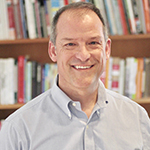
Dave Mochel, M.A.
Dave has been studying the practices and principles of mindfulness, well-being, and leadership for more than thirty years. After a career teaching neuroscience and human development, he founded Applied Attention Coaching and Consulting. Dave combines modern science, enduring wisdom, and real-life application to help individuals, teams, and leaders focus their attention and energy where it will make the greatest positive difference.
In addition, he is a lecturer in The School of Health and Human Performance at Stanford University, the author of Good Life Practice: A Quick Start Guide to Mindful Self-Regulation, a two-time cancer survivor, and the proud father of two wonderful young men. Dave has degrees in biology and geology from Williams College, a Master’s in Humanistic and Multicultural Education from SUNY New Paltz, and a clinical internship in Mindfulness-Based Stress Reduction (MBSR) from the University of Massachusetts Medical Center.
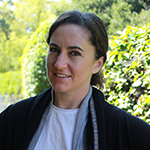
Jenara Nerenberg, M.S.
Jenara Nerenberg is a journalist and founder of The Neurodiversity Project, an event series and community platform hosting bestselling authors in science and medicine who push for innovation in research and advocacy. She is a professional interviewer and writes for the UC Berkeley Greater Good Science Center, Garrison Institute, Susan Cain’s Quiet Revolution, Elaine Aron’s HSP, and elsewhere. She is an alum of CNN, Fast Company, UC Berkeley, and the Harvard School of Public Health and is the author of the forthcoming book, Divergent Mind, addressing empathy and gender bias in mental health. You can find her on Twitter and Facebook, subscribe to The Neurodiversity Project newsletter for event announcements, or contact her directly on her website.
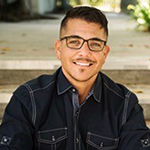
Aydin Olson-Kennedy, LCSW
Aydin Olson-Kennedy, LCSW, is the executive director of the Los Angeles Gender Center where he provides therapy for gender-nonconforming and transgender youth, adults, and their families. He has spoken internationally on the importance of an informed-consent model of care, identifying and acknowledging domains of privilege, and broadening clinicians’ and families’ understanding of gender dysphoria and its impact on the psychosocial well-being of gender-nonconforming and transgender individuals.
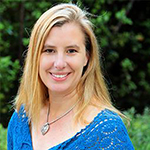
Johanna Olson-Kennedy, M.D.
Johanna Olson-Kennedy, M.D., is an Adolescent Medicine physician specializing in the care of gender non-conforming children and transgender youth. Board certified in Pediatrics and Adolescent Medicine, Dr. Olson-Kennedy has been a clinician-researcher at Children’s Hospital Los Angeles for the past eleven years. She has been providing medical intervention for transgender youth and young adults including puberty suppression and cross-sex hormones for the past eleven years and is considered a national expert in this area.
Dr. Olson-Kennedy is an Associate Professor at USC Keck School of Medicine and is the Medical Director of The Center for Transyouth Health and Development at Children’s Hospital in Los Angeles. The Center for Transyouth Health and Development is the largest transgender youth clinic in the United States. Dr. Olson-Kennedy has appeared frequently on national television, and spoken all over the country to educate providers, parents, and other communities about the needs of transgender youth.
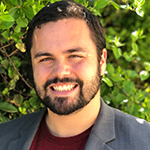
Kyler Shumway, M.A.
You might assume that Kyler Shumway, M.A., was one “the cool kids.” After all, he’s an author, former Division 1 athlete, and soon-to-be psychologist. But in reality, Kyler was a target. Bullied for his weight, his second-hand farm boy clothes, and his social anxiety, Kyler was made to believe that he did not belong.
As rejection, humiliation, and isolation became “normal” for him, he began to change. Kyler became the bully. After a painful journey of reconciliation and healing, Kyler swore to make things different – because he knows he is not alone.
Today, Kyler is on a mission. He believes that, together, we can bring an end to the bullying problem by creating a world where everyone can belong. To learn more about Kyler, check out his personal website at KylerShumway.com
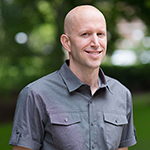
Matthew Smith, Ph.D., MSW, MPE, LCSW
Matthew J. Smith, PhD, MSW, MPE, LCSW, received his PhD from the University of Wisconsin-Madison and completed post-doctoral fellowships in psychiatric epidemiology and biostatistics at Washington University in St. Louis and in translational neuroscience at Northwestern University.
His primary research interests focus on developing and evaluating technology-based interventions that can be delivered in high schools and community mental health centers to improve community-based outcomes for transition-age youth with educational disabilities and adults with severe mental illness and/or other disabilities.
He is also interested in developing and evaluating technology-based tools to enhance the clinical education of social work students. He is interested in studying the social neuroscience and community-based functioning of individuals with schizophrenia.
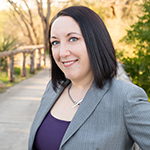
Mellissa Toler, M.S.
Mellissa obtained her Bachelor of Science degree in wellness and then went on to obtain her Master of Science degree in Developmental Disabilities from Nova Southeastern University. Mellissa took her knowledge and passion gained through personal experience and academics and applied it to helping adults with disabilities find and maintain employment through her work as a certified supported employment specialist and job skills trainer. Mellissa has earned an Autism Specialty professional endorsement from the University of North Texas and a Leadership and Advocacy in Developmental Disabilities professional endorsement from Nova Southeastern University.
Mellissa has worked as a Registered Behavior Technician, working with transition-aged individuals diagnosed with ASD to increased independent living skills and improve possibilities and opportunities for individuals with ASD as they move into adulthood. Mellissa continues to push the possibilities for individuals diagnosed with Autism.
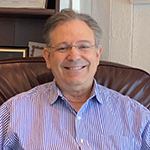
Lance Steinberg, M.D.
Lance Steinberg, M.D. has taught psychopharmacology internationally using humor and emphasizing clinical relevance. As Assistant Clinical Professor at UCLA (Geffen) School of Medicine, he has taught Fellows in Child Psychiatry at Cedars-Sinai Medical Center, and has received two Golden Apple Awards for “Outstanding Teaching”. His seminar “Child Psychopharmacology” was awarded ‘Highest Rated Course” from 2000-2010.
Dr. Steinberg graduated from Dartmouth Medical School and was designated a Rock Sleyster Scholar by the A.M.A. as one of the top ten medical students in psychiatry for the United States. He completed a full residency in pediatrics at UCLA and Children’s Hospital of Los Angeles, then a fellowship in adolescent medicine with an emphasis on medical-psychiatric interface at Stanford University Hospital and Clinics. Dr. Steinberg then trained in psychiatry at Cedars-Sinai Medical Center where he has taught advanced child psychopharmacology, CBT, and self-hypnosis for over twenty years.
Dr. Steinberg’s specialties include Tics, Tourette’s, OCD, ADHD, mood & anxiety disorders, Asperger’s, and Autism. Dr. Steinberg has offices in Calabasas, Encino, and Valencia.

Mellissa Toler, M.S.
Mellissa obtained her Bachelor of Science degree in wellness and then went on to obtain her Master of Science degree in Developmental Disabilities from Nova Southeastern University. Mellissa took her knowledge and passion gained through personal experience and academics and applied it to helping adults with disabilities find and maintain employment through her work as a certified supported employment specialist and job skills trainer. Mellissa has earned an Autism Specialty professional endorsement from the University of North Texas and a Leadership and Advocacy in Developmental Disabilities professional endorsement from Nova Southeastern University.
Mellissa has worked as a Registered Behavior Technician, working with transition-aged individuals diagnosed with ASD to increased independent living skills and improve possibilities and opportunities for individuals with ASD as they move into adulthood. Mellissa continues to push the possibilities for individuals diagnosed with Autism.
SPEAKERS FROM THE HELP GROUP
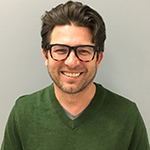
Jason Bolton, Psy.D.
Dr. Jason Bolton has over 25 years of experience working with children, adolescents, and families with histories of abuse and neglect, social-emotional challenges, and developmental disabilities including autism spectrum disorder and learning differences. He holds a B.A in Psychology from the University of Oklahoma, an M.S. in Applied Behavioral Studies from Oklahoma State University, and a doctorate in Clinical Psychology from the California School of Professional Psychology in Alameda.
He is The Help Group’s Vice President of Programs and previously served the agency as its Clinical Director and Chief Psychologist. In addition to clinical work, Dr. Bolton’s expertise includes effective leadership of diverse work groups, innovative program development, and responsible fiscal oversight of quality programs. He is a member of the Board of Directors and Finance Chair of the California Association of Private Special Education Schools and Agencies, known as CAPSES. Dr. Bolton is a proud father of triplet girls and, as a parent-consumer of developmental and special education services, frequently refers to his family as a glowing example of the power of early intervention.
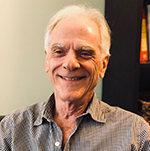
Ellis Crasnow, Ph.D.
Ellis Crasnow, PhD, is a Los Angeles-based educator, innovator and entrepreneur engaged in transforming lifelong opportunities for special needs students. A pioneer in developing new teaching models for empowering students across the autistic spectrum, Dr. Crasnow is a specialist on issues surrounding STEM, technology and special needs. He holds a doctorate in philosophy from USC, with a focus on the philosophy of science. He is the Director of STEM Education at The Help Group, and Founding Director of STEM3 Academy. Dr. Crasnow is a frequent speaker at conferences, nationally and internationally, on the importance of STEM education, special education, emerging technologies and neurodiversity in the workplace.
In 2012, The Help Group began a pilot program at Village Glen High School, which Dr. Crasnow led. The success of that program and its expansion to include STEM infusion into the middle and elementary schools’ curriculum provided the impetus to start STEM³ Academy. Prior to teaching, Dr. Crasnow was a successful entrepreneur, and is an avid hiker and photographer. Dr. Crasnow is a frequent speaker at conferences, nationally and internationally, on the importance of STEM education and its benefit to those with social and learning differences.
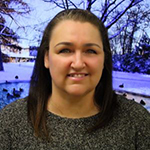
Heather Humphrey, M.A., LMFT
Heather Humphrey is a licensed Marriage and Family Therapist with extensive experience providing services to children, teens, and adults with autism spectrum disorder and other special needs. Heather currently supervises The Help Group’s adult and vocational programs, which include Advance LA, Project Six Adult Residential Program, the Community Employment Program, the WorkAbility 1 Program, and the We Can Work Program.
A Pepperdine University frequent flyer, earning Master’s degrees in both Applied Psychology and Clinical Psychology, she has worked with a wide variety of populations including individuals with autism spectrum disorder and other learning challenges, individuals with complex trauma needs, individuals that identify as LGBT+, and forensic clients. Heather is currently the State Chair of the Business, Education and Labor committee as part of the WorkAbility 1 program, through the California Department of Education.
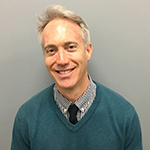
Bryan Scheihing, LMFT
Bryan is the Program Coordinator for The Help Group’s Kaleidoscope LGBTQ+ Program. He is a licensed psychotherapist with experience working in community mental health agencies to provide individual, family, and group services to clients with special needs, including providing affirmative care to marginalized minority groups to promote awareness, acceptance, and empowerment.
Select Presentations
Autism in the Workplace- Strategies for Success in Tech Fields
Ellis Crasnow, Ph.D.
Anxiety Disorders in Emerging Adults: Conceptualization and Cognitive-Behavioral Approaches
Margaret Distler, M.D., Ph.D.
College and the Launch to Adulthood for Neurodiverse Youth
B. Janet Hibbs, Ph.D. & Anthony L. Rostain, M.D., M.A.
Six Super Skills: Building Executive Functioning to Dream It and Do It
Lara Honos-Webb, Ph.D.
